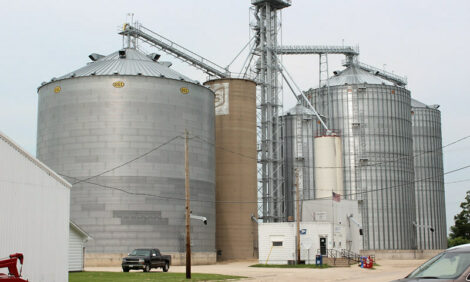



Wheat Imports Increase As Corn Prices Rise
JAPAN - Japan, the world's largest corn buyer, may cut back on buying corn as feed and instead turn to wheat. Wheat imports almost quadrupled this year to the highest level since 2001, as livestock producers seek to cut costs.Feed-wheat imports may surge to 430,000 metric tons from 112,000 tons in the year that ended 31 March, said Ikuho Tomita, deputy director at the agriculture ministry's feed supply and demand planning office. Imports were 473,000 tons in 2001.
Higher imports may stem a 25 per cent decline in Chicago wheat futures this year as the United Nations expects the biggest-ever global harvest while Russia and Ukraine ease export restrictions, boosting supply. Feed wheat was offered to Japanese buyers at about $50 a ton cheaper than US corn as shippers compete for sales, said Nobuyuki Chino, president of Continental Rice Corporation in Tokyo.
"Increased purchases of feed wheat means Japan's corn imports will decline, as overall demand for feed grains isn't growing," Mr Tomita. Japan's feed makers, recovering from damage caused by the 11 March earthquake and tsunami, "are taking advantage of an expanded gap in purchasing costs between corn and wheat."
The agriculture ministry, which controls overseas purchases and domestic sales of wheat to stabilise supply, has given feed makers permission to buy the grain beyond the government-set ceiling of 300,000 tons this fiscal year. According to The Japan Times, this will be the first breach of the limit in 48 years, as demand for corn substitution increased on a widening price gap, Mr Tomita said in an interview.
The ministry obtained approval from the Finance Ministry to increase purchases and secured a ¥65 billion ($842 million) budget to import wheat and barley for sales to feed makers this fiscal year, he said.
The farm ministry holds feed-grain import tenders every Wednesday for sales to 10 livestock industry organisations, including Zen-Noh, the nation's largest farmer group. In September, the ministry sold feed wheat at ¥28,073 per ton on average.
Wheat futures on the Chicago Board of Trade slumped to $5.88 a bushel on 23 November, the lowest since July 2010. Corn futures were at $5.955 a bushel. The price reached a three-year high of $7.93 on 9 June.
Japan imported 169,318 tons of feed wheat in the nine months that ended 30 September, data from the Finance Ministry showed. Half was from Australia and half was from Canada.
Japan is also seeking grain from the United States and the Black Sea region, after securing about 20,000 tons of American soft-white wheat last month, said Charlie Utsunomiya, director at the Tokyo office of US Wheat Associates.
Ukraine scrapped export duties last month, spurring Japanese trading companies to buy 800,000 tons of corn as an alternative to US supply. The country removed duties of 12 per cent on corn and nine per cent on wheat on 22 October that had been in place since 1 July.
Feed wheat in Japan is mainly given to hogs. Pork production has increased as Japanese consumers shift tastes after fallout from the crippled Fukushima number one nuclear plant tainted cattle feed and beef.
Domestic pork production increased 4.1 per cent in August and 1.9 per cent in September from a year earlier after the government detected cesium-tainted beef in July, slashing local demand and sending prices tumbling, according to data from Agriculture & Livestock Industries Corp.
Farmers also increased pork output after an outbreak of foot-and-mouth disease last year, said Akio Tamai, assistant manager for the company's planning division.
Japanese beef production fell 3.7 per cent in September after plunging 12 per cent in July and 10 per cent in August, as demand also shifted to chicken and imported beef, he said.
The average price of A4-grade "wagyu" beef plunged 15 per cent to ¥1,435 a kg in July on the Tokyo meat market before recovering to ¥1,446 in September.
"Farmers are struggling with low prices for meat and high costs for feed," Mr Tamai said.


